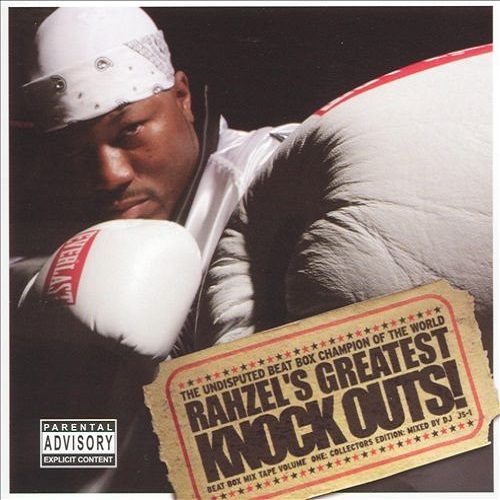Beatboxing. The term itself sounds pugilistic, as though eardrums were being attacked with body blows and uppercuts. To critics who understand little about hip-hop music and culture, the contributions of artists like Buffy the Human Beatbox and Doug E. Fresh are therefore little more than an attack on music. That’s pure nonsense. The lips, teeth, tongue, throat and lungs of human beings has long been recognized as a instrument for making music; typically for singing, more recently for rapping. As such there’s no reason it can’t be an instrument for making beats, and in fact the tradition for doing so is as old as time itself. It certainly predates recorded music. The beatboxer enjoys a venerated position in hip-hop though because of it’s background in urban poverty. The same innovation that caused rap pioneers to turn the turntable into a musical instrument recognized that beats didn’t have to be made by studio musicians or expensive drum machines. And quite frankly, what’s more entertaining at a party or paid performance – a soulless synthetic rhythm, or the live on the mic skills of beatboxing in the flesh?
Rahzel the Godfather of Noyze knows the answer. As an intergral member of hip-hop group The Roots, his beatboxing skills both on their albums and at their legendary live shows made him a household name, even before he became an MTV icon. While beatboxer turned rapper Biz Markie once professed to “Make the Music With Your Mouth,” Rahzel does far more than that. It’s sometimes hard to believe what he does is humanly possible – simultaneously making the beat and melody/bassline come out of his mouth at the same time. He also makes INHUMAN noyze, making him the Michael Winslow of the hip-hop set. (If the name doesn’t ring a bell, he’s the brother from the “Police Academy” films.) He has a spot on ability to mimic almost any hip-hop classic, but he has also MADE quite a few classics on his own. That’s what “Rahzel’s Greatest Knockouts” is all about. Gritty rap artists have always enjoyed comparing their styles to great ringmasters like Muhammad Ali and Roy Jones Jr., so it’s only fair that a beat-boxer like Rahzel should don the gloves on his album cover and hit you with a one-two combo of his greatest beats, styles, and rhymes.
One of the moments that should have hip-hop fans smiling and shaking their heads is the “Funkmaster Flex Interlude,” where the ubiquitous DJ eschews all background music for his show and lets Rahzel be the provider instead. He excels at it, even going so far as to re-create the Pete Rock classic “The Creator” perfectly – drums, bassline, breakdown, SOUND EFFECTS AND SCRATCHES all in one. Then on the fly, he breaks down into a scratched execution of “Rock the Bells” by LL Cool J without missing a beat. It’s a performance that like AJ Styles can only be called “phenomenal.” There’s so much more though. You’ll hear him rocking the “Essentials” with KRS-One. In a live duet with RZA, he proves they are both “Nutin to Fuk Wit.” Hardcore rap fans may choke up a little hearing his duet with Supernatural, as they pay tribute to Jam Master Jay during a live set (someone should have turned up the audio though). Of course, no album of his “Greatest Knockouts” would be complete without songs like “The Lesson Pt. 1” by The Roots f/ Dice Raw and “Night Riders” featuring Slick Rick.
The only thing that may be surprising about “Greatest Knockouts” is the songs which they DIDN’T choose to include (well, at least on this advance copy). “Southern Girl” featuring Erykah Badu is nowhere to be found. His rapping debut “All I Know” is missing too. And where’s “? vs. Rahzel” at? On the other hand, you can’t front on hearing sweet items like his duet with E.S.T. (the Acknickalous One, formerly of Three Times Dope), “Everyday” with Rob Swift, his tribute to Aaliyah, Rahzel’s entertaining “Guess (You Never Knew)” or his “Remarkable” rap with Keith Murray and Lord Tariq. It’s just odd because as one of rap’s supreme musical machines, “Greatest Knockouts” should have landed a blow like Tyson did Spinks, but instead lumbers through twelve rounds, winning each one 10 to 9. There’s little dispute any beatboxer alive today is better than Rahzel, but he scores a technical win instead of a quick KO. For his fans and for those who appreciate the highly unregarded fifth element of hip-hop, “Rahzel’s Greatest Knockouts” is a clear winner. It doesn’t tarnish his image or reputation, so his cult following will remain in tact. It will also REMAIN a cult following, because technical performances don’t convert new fans – devestating roundhouse punches and uppercuts do.

